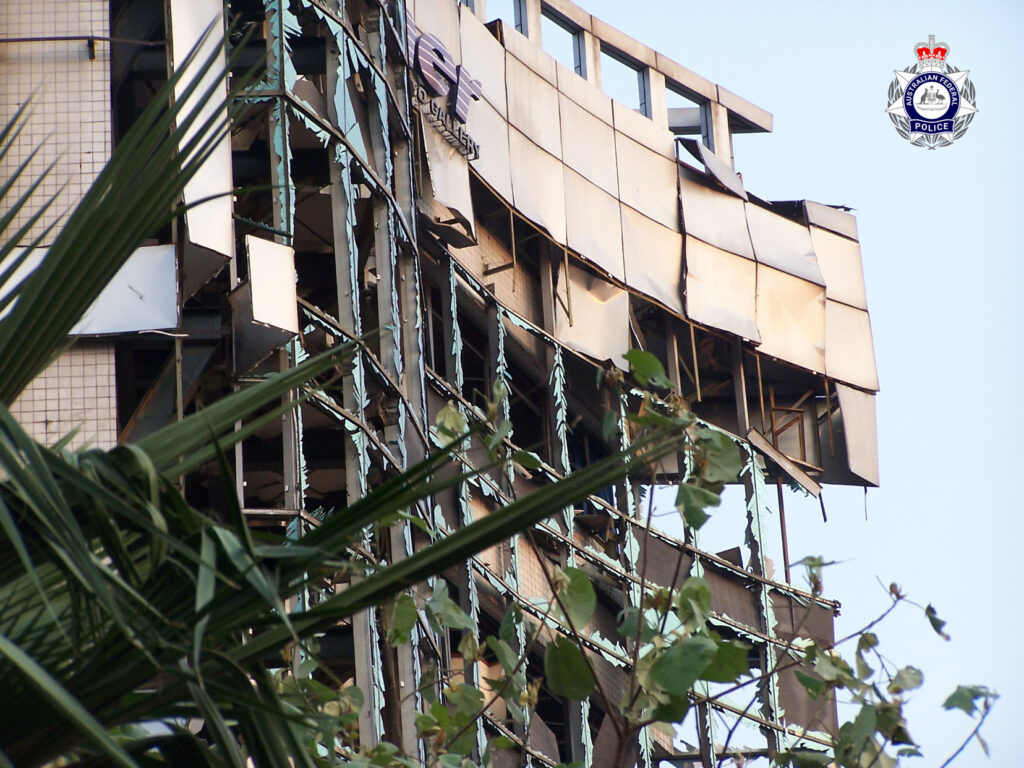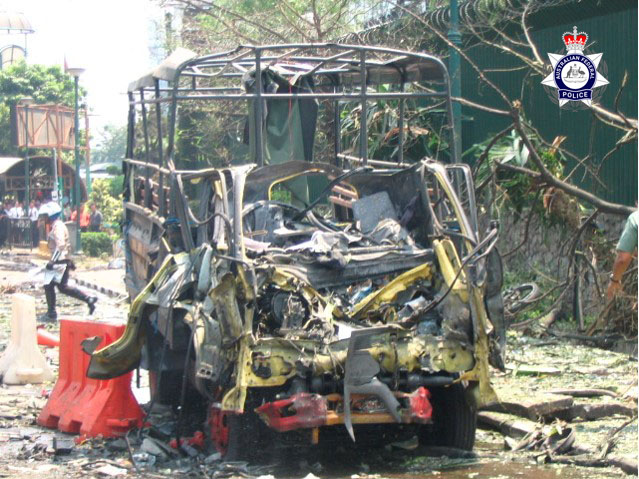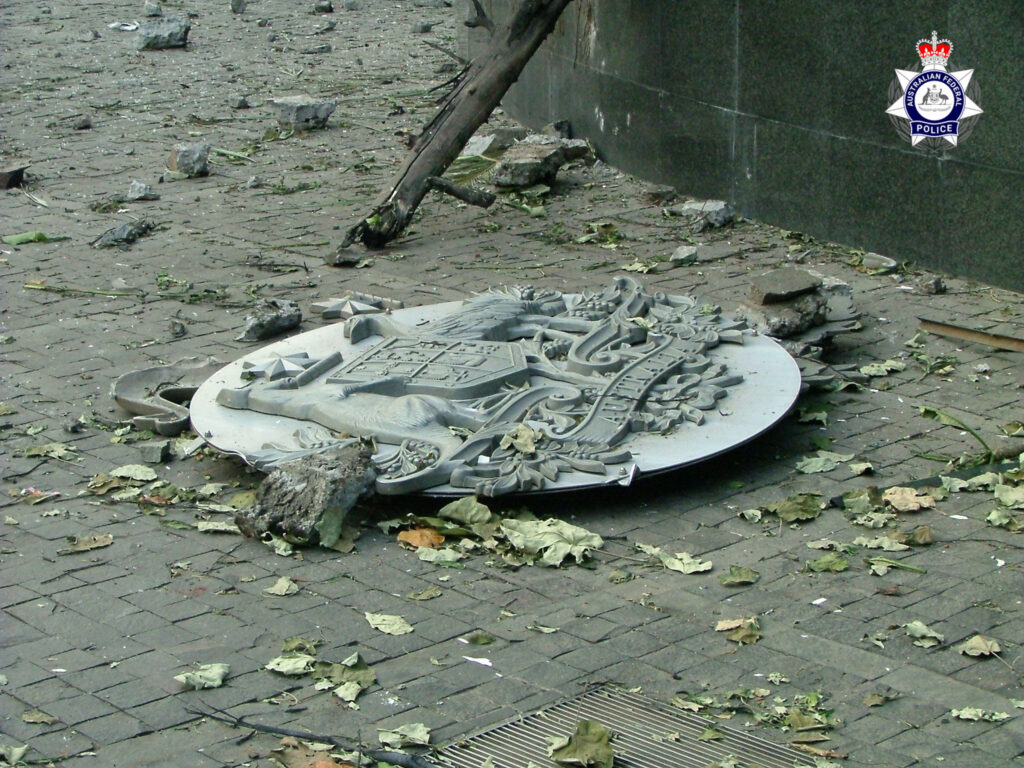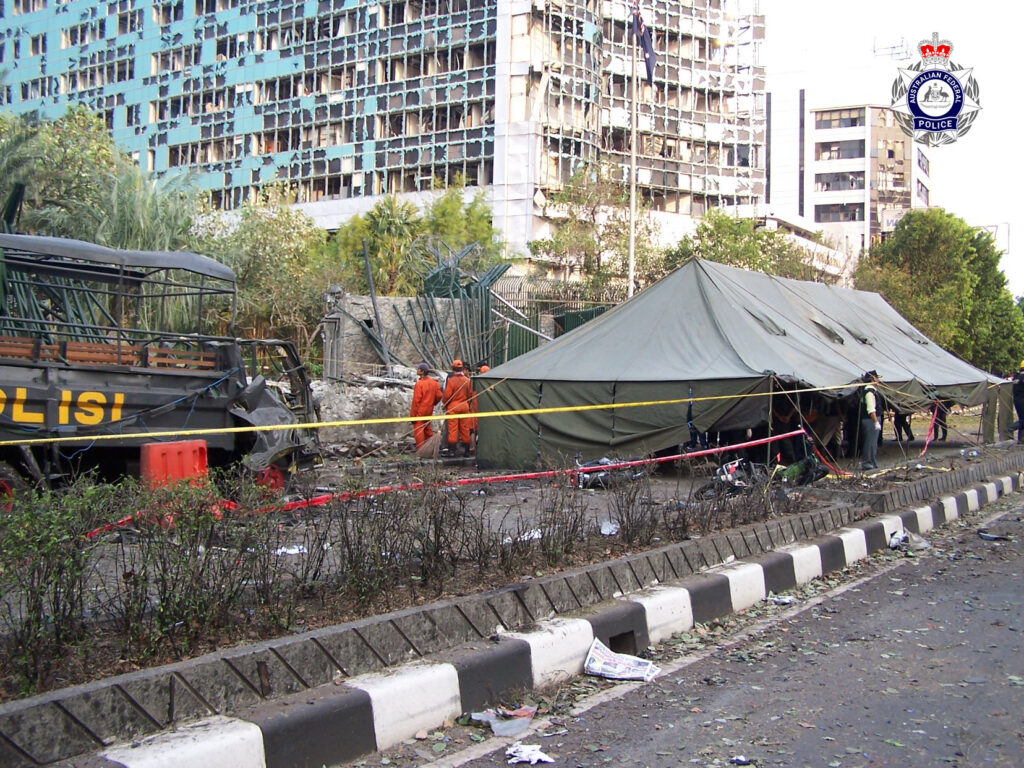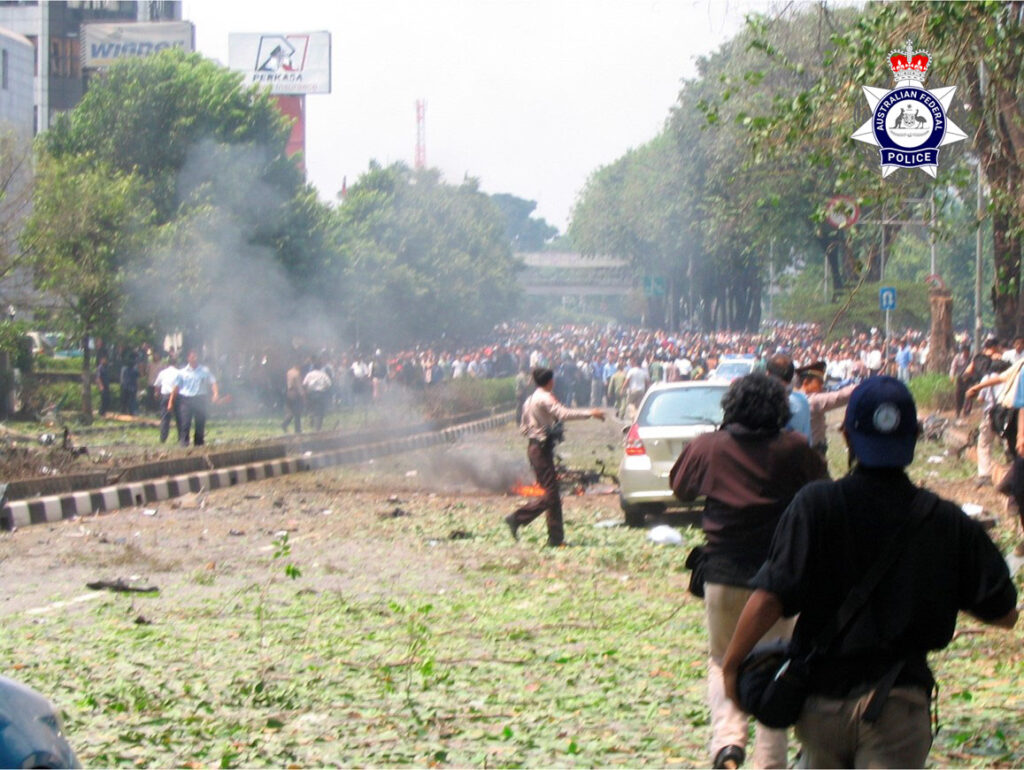Ceremonies were held in Australia and Indonesia this week to commemorate the 10 people killed on the day of the attack and more than 200 people injured in the bombing outside the Australian Embassy in Jakarta 20 years ago.
On September 9, 2004, a suicide bomber detonated a one-tonne bomb hidden in a truck outside the Australian Embassy in Jakarta, which was the workplace for Australian Federal Police officers based in Jakarta.
It was the first deadly attack on an Australian diplomatic mission, and all 10 victims were Indonesian citizens, including locally contracted staff who worked at the Embassy.
AFP Detective Superintendent Stephen Jay was then a Federal Agent working at the AFP’s Joint Operations Centre, which had been set up in response to previous terrorist attacks in Indonesia, including the 2002 Bali bombings and the 2003 Marriott Hotel bombing.
Det-Supt Jay was on his way to the Embassy to drop off paperwork when the bomb exploded.
“I will never forget the sight and the sound of the explosion, with the large mushroom cloud rising from where we knew the embassy to be,” he said.
“When I arrived at the scene there were people and debris everywhere – it was chaos.
“Once we were on the ground, our priorities were looking after the victims and then working with our contacts in the Indonesian National Police’s (INP) Counter Terrorism team.”
Operation Bantu (Bahasa Indonesia for ‘help’) led to Australian investigators, forensic, technical and intelligence specialists work in support of their INP counterparts to find who was responsible for the deadly attack.
Plastic pellets from the boxes holding the bomb were found at the scene and helped to link the attack to Noordin Mohammad Top and Azahari Husin, who were members of the Jemmah Islamiyah terror group.
The pair was already wanted for several other deadly attacks and were both later killed when the INP attempted to arrest them.
AFP Commander Southeast Asia Warwick Macfarlane said the 2000s were a challenging decade for Australia and Indonesia, but the adversity ultimately brought the law enforcement agencies of the two nations closer together.
“Australian and Indonesian police were united by a shared need to defeat extremism and keep local communities and visitors safe,” he said.
“Tragic events like the bombing of the Australian Embassy in Jakarta only strengthened our resolve to work together to defeat a common enemy.
“The legacy of that increased cooperation continues today and can be seen in partnerships like the Jakarta Centre for Law Enforcement Cooperation (JCLEC), which recently marked 20 years of operation.”
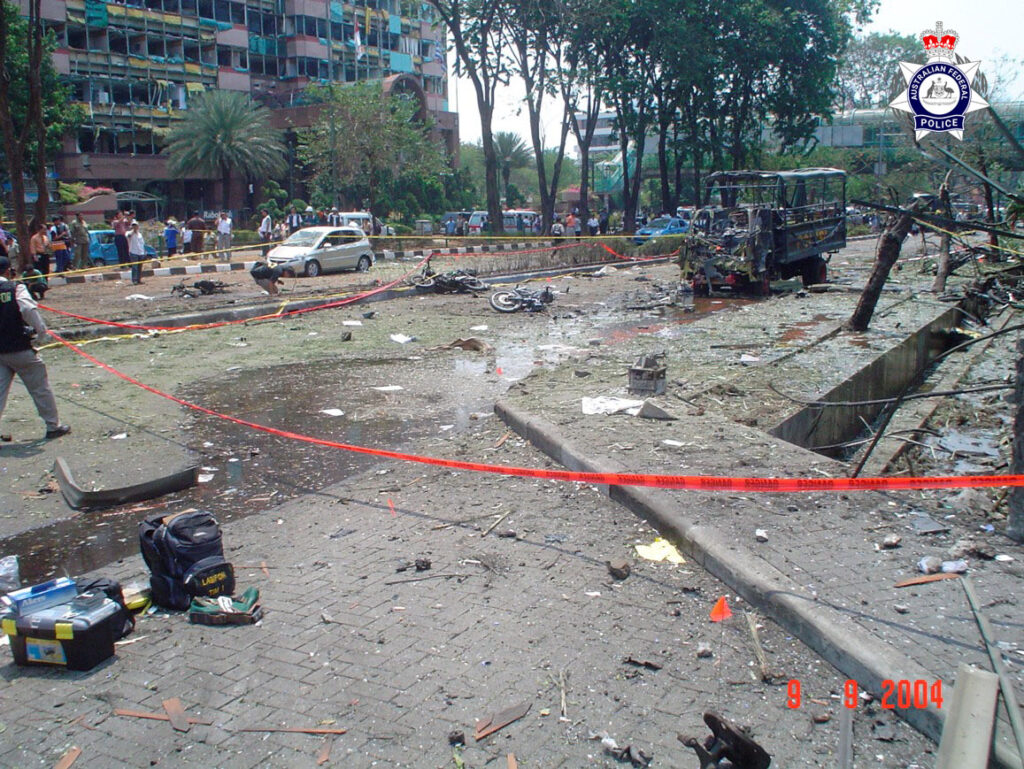
The JCLEC was established by the Indonesian and Australian governments after the 2002 Bali Bombings and has delivered more than 1800 counter terrorism, people smuggling and cyber awareness programs to more than 44,000 participants from 94 countries.
The AFP has personnel in 34 countries working with international partners to build crime-fighting capacity, contribute to regional stability and respond to international incidents.
To mark 20 years since the Jakarta Embassy bombing, representatives from the AFP attended a private commemoration ceremony at the Department of Foreign Affairs and Trade headquarters in Canberra, and another event at the Australian Embassy in Jakarta.
The Australian Strategic Policy Institute has just published a piece on the bombing.
To quote from ASPI: Twenty years ago today, on a Thursday morning, an innocuous white delivery van stuttered towards the gate of the Australian embassy in Jakarta. Seconds later, an explosion shattered windows for blocks around and left 10 Indonesians dead, including embassy security staff and a mother waiting in the visa line with her young daughter. More than 200 Indonesians and Australians were injured, mainly by flying glass.
This was the first time an Australian embassy had been attacked, although other Australian missions in the region had previously been the subjects of terrorist planning.
Despite the extraordinary shock felt initially in Australia, the risk is that, 20 years on, it’s been largely forgotten, along with broader memories of the decades-long struggle against Islamist terrorism regionally. Similarly, a more recent anniversary, the highpoint of the Islamic State in Iraq and Syria (ISIS) ‘caliphate’—Mosul’s capture in June 2014—passed with little notice. Australia largely overlooked that anniversary even though a disproportionate number of its citizens had sought to join the ranks of ISIS (and 230 did so). Many others were citizens of Australia’s neighbours—including Indonesians, whose numbers are variously estimated between 689 and almost 1300.
This community-wide amnesia reflects ephemeral contemporary culture but also the degree to which the counter-terrorism experience was not shared equally across Australian society.
